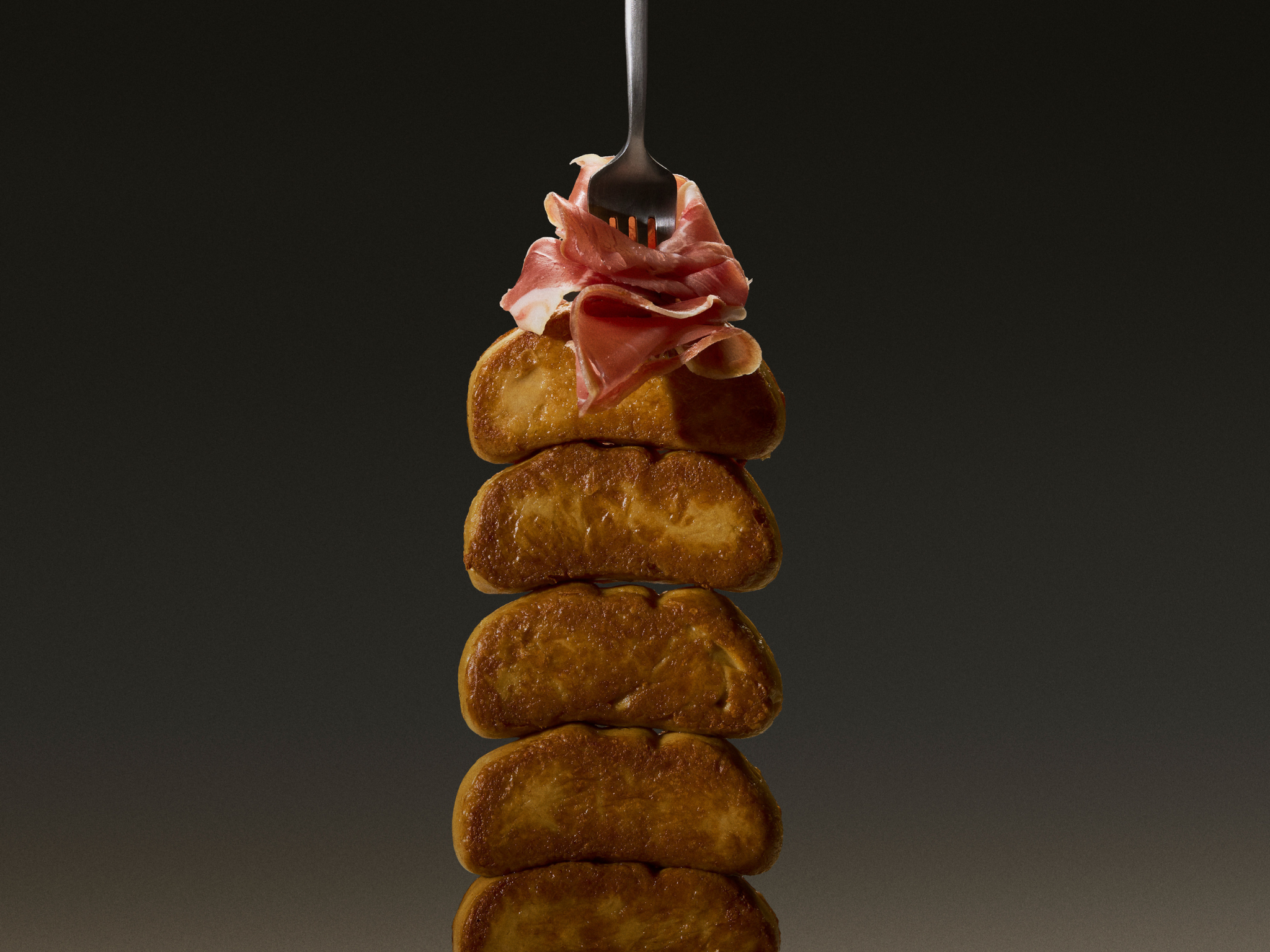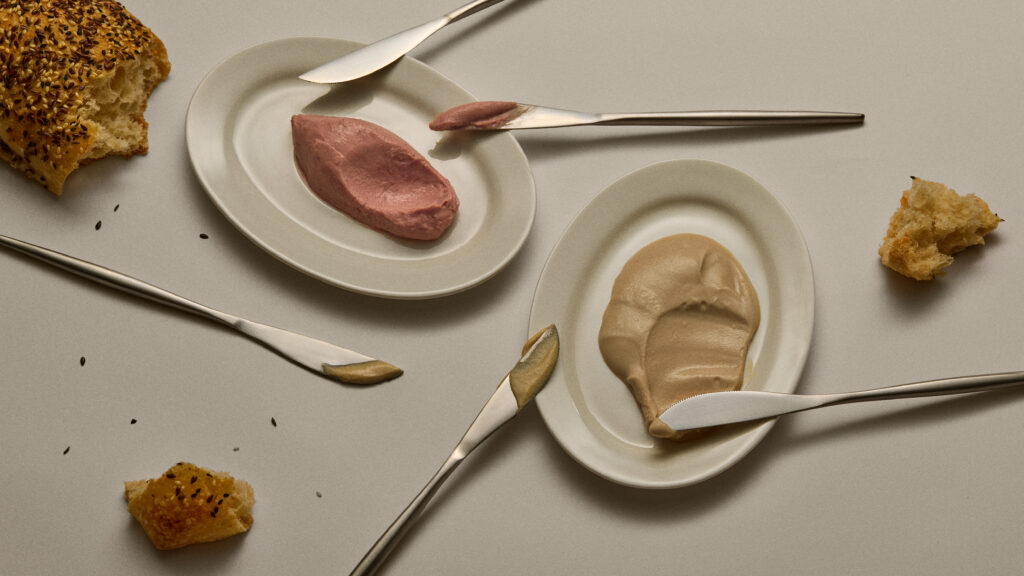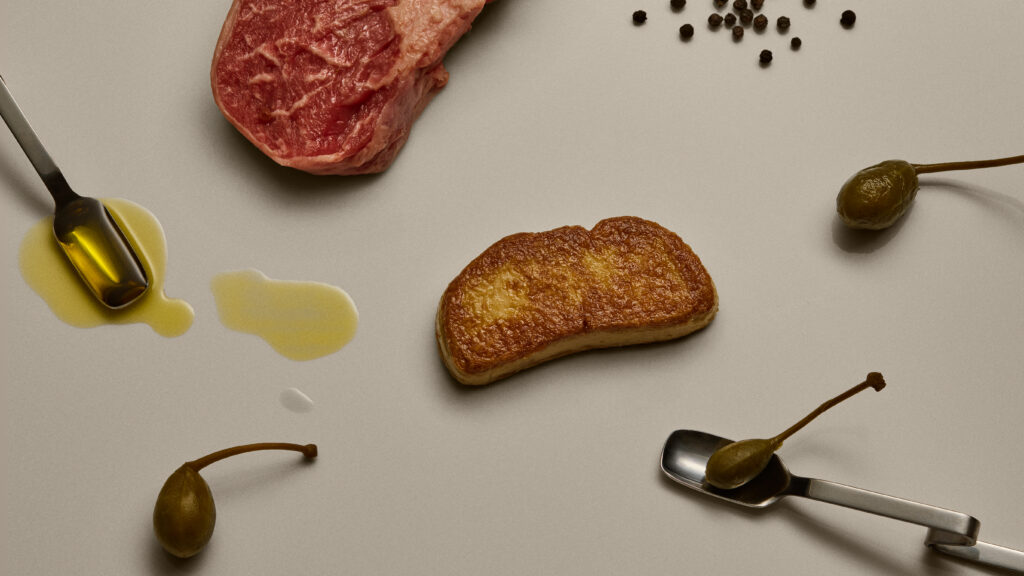
Sydney-based Vow received regulatory approval to sell cultivated meat in Australia and New Zealand, which will begin appearing on restaurant menus in the coming weeks.
Australians will soon be able to order cultivated meat from restaurant menus, following the country’s first approval of these novel proteins.
The joint food safety regulator of Australia and New Zealand has amended its Food Standards Code following a multi-year assessment of Vow’s cultured quail, allowing the startup to sell its innovation in eateries and supermarkets across the two countries.
It followed the preliminary approval granted by Food Standards Australia and New Zealand (FSANZ) in March, when its board had finalised the required food code changes, as first reported by Green Queen. They were then under review by food ministers across the two countries, before culminating in the approval decision for Vow.
Speaking to Green Queen in April, co-founder and CEO George Peppou had confirmed the company would launch in Australia first, via “high-end restaurants and elevated fast-casual concepts first, followed by retail partnerships later in the year”.
Now, the firm has announced that its cultured Japanese quail – sold under the Forged brand in concepts like parfait and foie gras – will debut at dozens of restaurants within weeks, including Bottarga and The Lincoln in Melbourne, and Nel, The Waratah, and Kitchen by Mike in Sydney.
“This isn’t about replacing the meats we know and love. It’s about trying something entirely new – something that can only exist because of how it’s made. For chefs, that’s incredibly exciting. But for all of us, it’s a huge opportunity,” said Mike McEnearney, owner and executive chef at Kitchen by Mike.
He has signed on as the first Australian ambassador of Forged, and will showcase its cultivated meat at the soon-to-open 1Hotel in Melbourne too. “The future always lies in bold ideas that seem impossible at first, but are rooted in real innovation – the kind that drives culture forward,” he added.
FSANZ approval could speed up future applications

Vow is already one of the leading cultivated meat players globally, becoming the only startup to be approved to sell in three geographies.
It first secured the greenlight in Singapore last year, where its quail has rolled out at a growing list of venues since, including Two Men Bagel House, Mirko Febbrile’s Somma, and sustainability-forward bar Fura. According to the company, it is posting a 200% month-over-month growth in the city-state. Now, it can be sold in Australia and New Zealand too.
In its approval decision, FSANZ confirmed that Vow’s cultured quail will be mixed with other ingredients – as is the norm for cultivated meat – to produce dishes in restaurants and foodservice establishments, and end products for supermarkets.
It further noted that the product cannot be included in “special purpose foods” like sports foods, infant formula, or food for special medical purposes without additional pre-market assessments.
And in the amended code, FSANZ clarified that these proteins must be labelled as “cell-cultured” or “cell-cultivated” on packaging, if it’s “represented in words, images or both as being from the animal” from which the food is sourced.
“FSANZ has now successfully developed a dedicated regulatory pathway for cell-cultured foods, opting to introduce two new standards for Cell-Cultured Foods rather than relying on the existing Novel Foods Framework. This establishes ANZ as only the second jurisdiction globally (after the US) to adopt a bespoke regulatory process for cell-cultured meat,” explained Kim Tonnet, head of regulatory affairs at Cellular Agriculture Australia.
“This move will make the requirements clear and defined for future applicants, reducing uncertainty and delays, and thereby streamlining the approval process. In a really positive step, FSANZ also indicated that future applications under these standards may benefit from faster and more cost-effective assessments,” she added.
Vow hits production milestone with largest-ever cultivated meat

To make its cultivated meat, Vow uses a small selection of cells from a Japanese quail and places them in a nutrient-rich broth, which is transferred into fermentation tanks that recreate the conditions inside a quail’s body and allow the cells to grow and multiply naturally. The meat is ready for harvest in 79 days, when it is separated from the broth and incorporated into delicacies like parfait and foie gras.
“Flavour is everything to us – it’s the reason Forged exists. We’re crafting meats that aren’t just rich and complex, but downright irresistible,” said Peppou. “Many [chefs] describe the product’s signature umami depth and silky, melt-in-your-mouth texture as unlike anything they’ve worked with before.”
The startup has raised $55M to date, entering the market with a smaller outlay than others that have received approval, including Upside Foods ($608M), Eat Just ($270M), Aleph Farms ($147M), Wildtype ($120M) and Mission Barns ($60M).
The FSANZ’s initial approval had come weeks after Vow cut back 30% of its workforce, a decision that stemmed from a longer-than-expected timeline for regulatory clearance, but one Peppou described as coming from a “position of strength as the industry leader, not a position of weakness”.
The company has hit several production milestones in recent months. Its cell cultivation capacity has extended to 35,000 litres within its second factory, which it says was 20 to 50 times cheaper to build than competitors. It operates the largest food-grade cell culture bioreactor at 20,000 litres, and claims to have completed the largest cultivated meat harvest in history (538 kg) last month.
By the end of the year, Vow expects to reach a production capability of up to 900 kg per harvest, scaling to 10,800 kg monthly or 130,000 kg annually. Longer-term improvements that make use of the full factory capacity will allow it to eventually surpass 20,000 kg a month.
A ‘momentum shift’ away from the US?

“Meat has never been more popular, especially in Asian markets that import top-quality proteins from down under. The challenge is that conventional production methods are highly inefficient: we currently feed up to 100 calories to a cow to produce just one calorie of beef,” said Mirte Gosker, managing director of alternative protein think tank the Good Food Institute.
“Sustainably satisfying rising meat demand will require scaling up additional forms of protein production that can complement the traditional farming methods Australia is renowned for,” she added.
“Australia’s public embrace of cellular agriculture could enable local food producers to sell healthy and delicious cultivated proteins through existing agricultural distribution networks and add substantial new revenue streams to their ledgers. It also sets the stage for greater international regulatory harmonisation, which has the potential to unlock export opportunities across the world’s most populous region.”
Globally, six other companies have received some form of regulatory clearance to sell cultivated meat, including Eat Just (in Singapore and the US), Upside Foods, Mission Barns and Wildtype (all in the US), Aleph Farms (in Israel), and Meatly (in the UK). Regulators in the EU, Switzerland and Thailand are evaluating applications too.
Vow’s success over the last 18 months comes as “momentum shifts away from the US”, according to the company, which appeared on The Late Show with Stephen Colbert for its viral woolly mammoth meatball stunt in 2023. Cultivated meat has become entrenched in the culture wars, with six states having banned these proteins from being sold or produced.
Meanwhile, investment in cultivated meat has also continued to fall, by 75% in 2023 and another 40% in 2024. In the last three years, startups in this category have cumulatively raised less money than they did in 2021 alone.
Currently, Wildtype and Vow are the only two companies actively selling cultivated meat in restaurants, highlighting the scale and commercialisation challenges faced by many startups. Vow’s cultured quail, however, will soon be served in over 50 venues, showcasing the true potential of the sector.
“With an expanding network of restaurants in Singapore continuing to serve Forged just 14 months after launch, the appetite for what’s next is already clear,” said Peppou. “This is a new category of food that hasn’t just been accepted – it’s been embraced. And if that’s any signal, Australia’s just getting started.”
The post Vow Makes History As First Startup to Serve Cultivated Meat at Australian Restaurants appeared first on Green Queen.
This post was originally published on Green Queen.